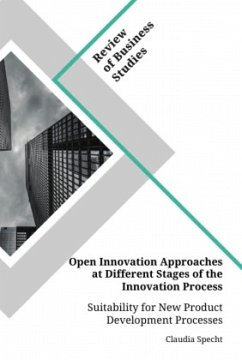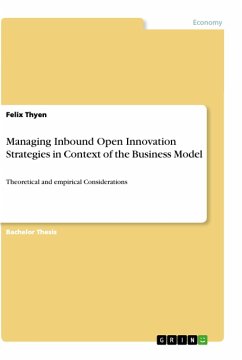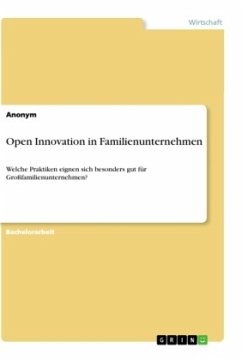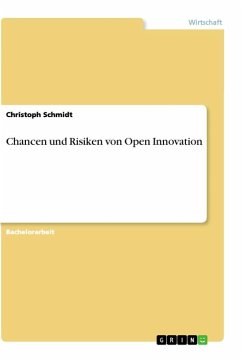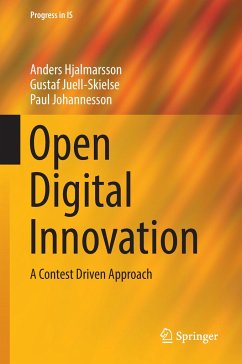
Heuristics in Open Innovation Activities. An Explorative Attitude Survey

PAYBACK Punkte
0 °P sammeln!
Bachelor Thesis from the year 2016 in the subject Business economics - Business Management, Corporate Governance, grade: 1,7, Friedrich-Alexander University Erlangen-Nuremberg (Fab Lab Region Nürnberg e.V.), language: English, abstract: In contemporary innovation management, companies increasingly dissolve their internal boundaries to leverage potentials from the outside world by creating synergies for the development of new technical solutions, for example through the reception of key incentives provided by lead users. Such processes of open innovation have remained relatively unexplored fro...
Bachelor Thesis from the year 2016 in the subject Business economics - Business Management, Corporate Governance, grade: 1,7, Friedrich-Alexander University Erlangen-Nuremberg (Fab Lab Region Nürnberg e.V.), language: English, abstract: In contemporary innovation management, companies increasingly dissolve their internal boundaries to leverage potentials from the outside world by creating synergies for the development of new technical solutions, for example through the reception of key incentives provided by lead users. Such processes of open innovation have remained relatively unexplored from the part of various authors and their theories on problem-solving. One such example serving as the basis for this thesis is the adaptive toolbox by Gerd Gigerenzer, focusing on individual behaviour under limited knowledge in a certain environment and cognitive mechanisms called heuristics, used daily by human beings to avoid or overcome complications.In this context, the centrepiece of thiswork is the answer to the question of which heuristics do individuals deploy in an open innovation environment and how these techniques can be categorized. Therefore, a qualitative attitude survey was realized for the accomplishment of this task, what additionally involved the conduction of semi-structured interviews at the FabLab laboratory for open innovation and an extensive content analysis afterwards.In terms of the results, five different approaches were detected in the given setting and specifically classified according to the individual motives mentioned by the subjects from the sample. In addition, the categories "heuristic" and "frequency" support the categorization by allowing a listing and a preliminary quantification of the heuristics.




